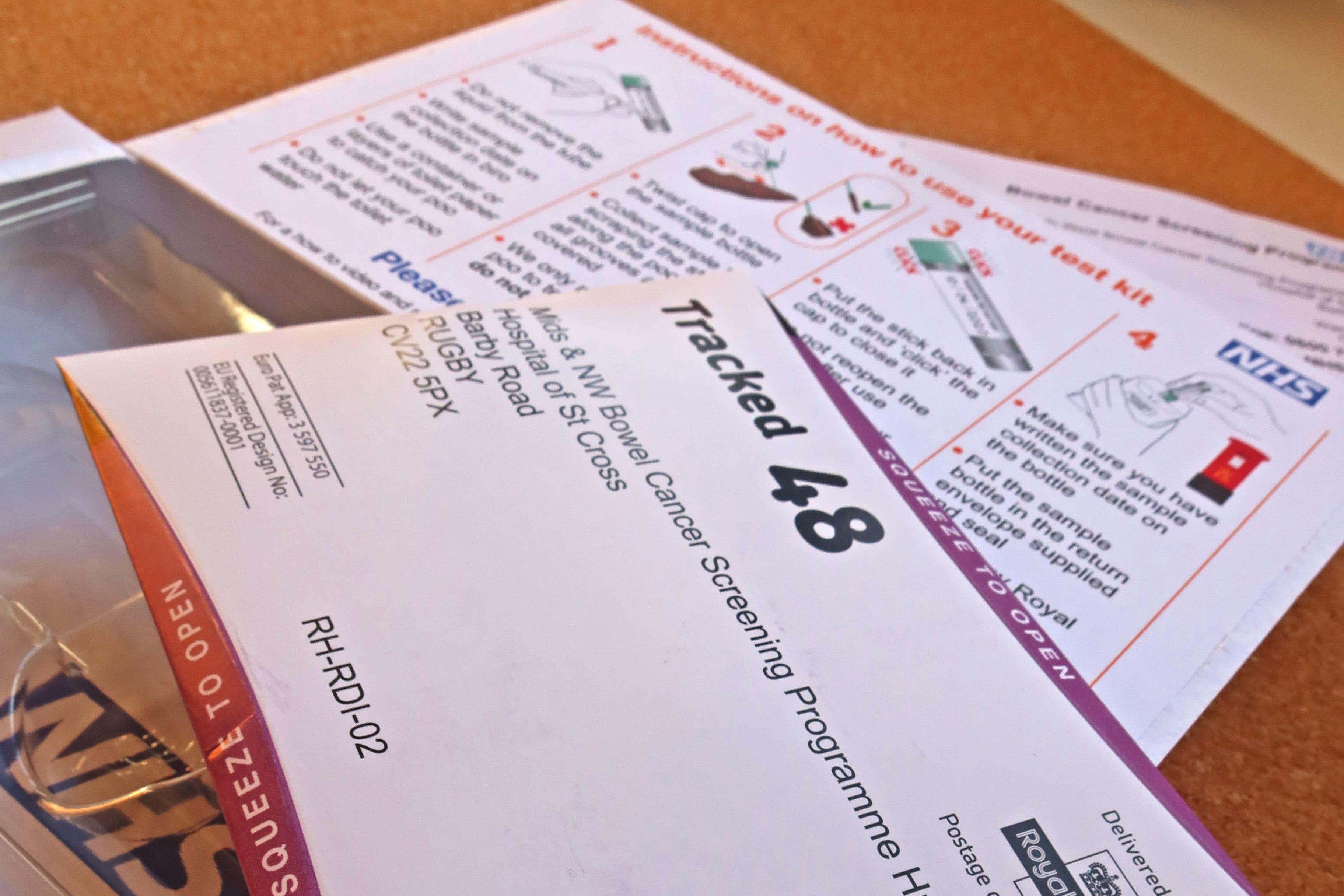‘Double testing’ helps identify more bowel cancer cases
The accuracy of detecting bowel cancer is increased to almost 100% by carrying out a common test twice.

Your support helps us to tell the story
From reproductive rights to climate change to Big Tech, The Independent is on the ground when the story is developing. Whether it's investigating the financials of Elon Musk's pro-Trump PAC or producing our latest documentary, 'The A Word', which shines a light on the American women fighting for reproductive rights, we know how important it is to parse out the facts from the messaging.
At such a critical moment in US history, we need reporters on the ground. Your donation allows us to keep sending journalists to speak to both sides of the story.
The Independent is trusted by Americans across the entire political spectrum. And unlike many other quality news outlets, we choose not to lock Americans out of our reporting and analysis with paywalls. We believe quality journalism should be available to everyone, paid for by those who can afford it.
Your support makes all the difference.Bowel cancer screening programmes could be more accurate if people perform the test twice, a new study suggests.
Academics from the University of Edinburgh found that the test – which looks for hidden blood in faeces – becomes nearly 100% accurate when people test twice, 13 days apart.
Each of the bowel cancer screening programmes in the UK use home tests called the Faecal Immunochemical Test (FIT).
These at-home test tests require home sampling which is sent off to a lab in the post.
Scientists can then use the samples to detect tiny amounts of blood and if this is found people are invited in for further tests.
Now experts have found that the accuracy of detecting bowel cancer in these tests is increased to almost 100% by carrying out the test twice, rather than once.
Researchers used two groups of NHS Lothian patients who had been referred urgently to the Edinburgh Colorectal Surgery Unit to compare the use of one FIT test or two.
Some 2,260 patients tested just once while 3,426 tested twice.
The researchers found that doing two FIT tests detected 97% of bowel cancer cases correctly, whereas undertaking just one test only detected 84%.
The second FIT resulted in a 50% reduction in cancers missed by the first FIT test.
In the study, the average time between the two tests was 13 days.
The new study, published in the British Journal of Surgery, also found that 17% of those to complete two tests had sufficient variation in their test results to change their care plan.
Researchers said that a two-test approach to screening could help spot cancers missed in the first FIT test and reduce the need for invasive colonoscopies for those who do not need them.
Farhat Din, reader at the University of Edinburgh and consultant surgeon at the Western General Hospital in Scotland, said: “Our study highlights how to maximise use of FIT in symptomatic patients.
“Use of two FIT tests will miss less bowel cancer with a positive impact on patient care. Locally, implementation of the double-FIT strategy has led to a reduction in endoscopy without adversely affecting cancer detection rates.”
Commenting on the paper, Genevieve Edwards, chief executive at Bowel Cancer UK, said: “Someone dies from bowel cancer every 30 minutes in the UK, making it the second-biggest cancer killer but it is treatable and curable if diagnosed early.
“Finding new ways to diagnose bowel cancer more quickly and accurately is key to saving thousands of lives. This study adds to a growing body of evidence that FIT can be highly effective at identifying people in greatest need of further diagnostic tests.”
In England, bowel cancer screening checks are offered to people aged 60-74 and the programme is currently being extended to those age 50 and over.
In Scotland, screening starts from age 50 and those aged 55-74 are invited in Wales.
In Northern Ireland people over the age of 60 are invited to take part in screening.